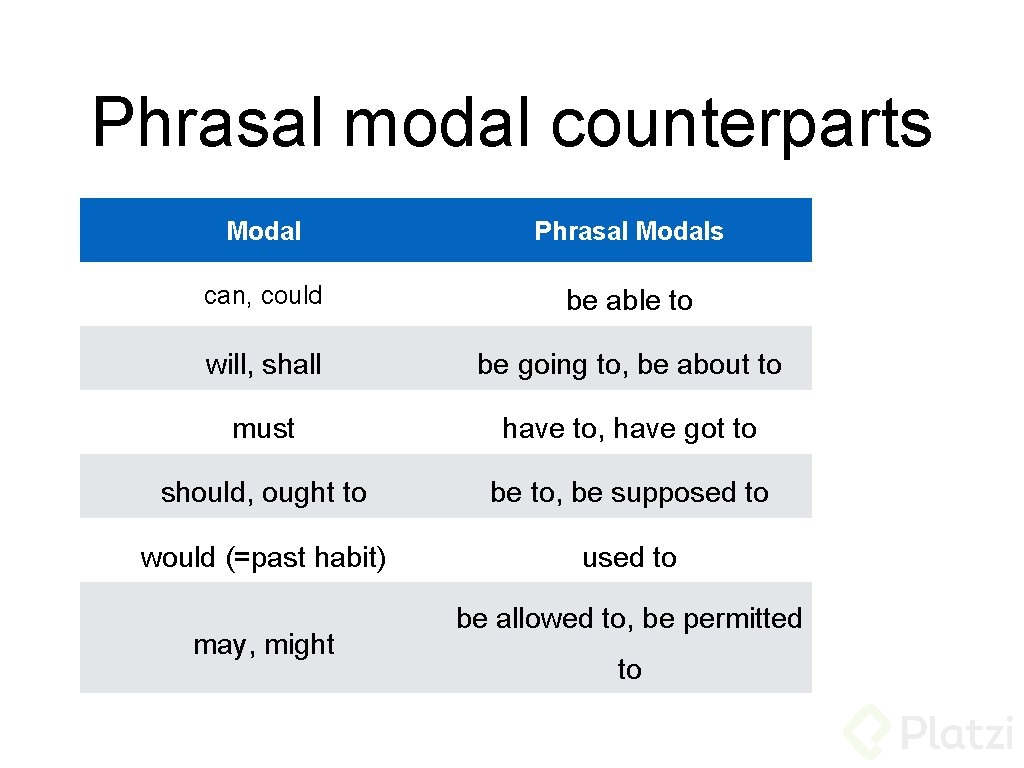Intermediate Grammar Project
PHRASAL MODALS
What are Phrasal Modals?
Phrasal modal are modal verbs with two or
more words. All of these modals have “to”.
They are:
> be able to (ability)
> be allowed to (permission)
> ought to (advice)
> have to, have got to (necessity/obligation)
Phrasal modals don’t follow the same the grammar rules of modals.
NOTE: Pay attention when you need to use “have to”, “have got to” and “be able to” because these phrasal modals can change depending on the subject.
Example:
> We have
to eat more fruits.
Instead of “we” we put “she”, “have” changes: > She has to eat more fruits.
STRUCTURE
Subject + phrasal
modal + main verb + complement
EXAMPLES
◈ You are able to correct the exams today.
◈ Since we know the teacher, we are allowed to go into the class early.
◈ They ought to plan the photo session this weekend. They don't have enough time next week.
◈ His cousins have got to cook for his auntie birthday.
REFERENCES
Phrasal Modals: types and use (2020). Platzi. https://platzi.com/clases/1989-intermedio-gramatica-2020/30516-phrasal-modals-types-and-use/
GIF images are provided from: https://giphy.com/


Comments
Post a Comment